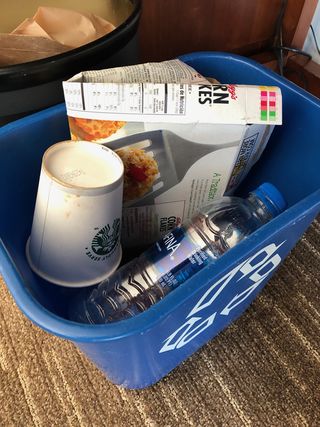
Motivation
A New Delivery of Paving Slabs for the Road to Hell
We are striving for new goals, but the issues are the same.
Posted April 24, 2019
I used to see myself as a health psychologist – not because I was especially interested in helping people to achieve goals related to their health (e.g., eat a good diet, get sufficient exercise), but because these behaviors seemed to present the classic example of good intentions that people often struggled to translate into action. And it is these struggles that I (and many others) are interested in understanding, both to advance our insights into the human condition and to tackle global challenges like obesity.
Health goals have not gone away or diminished in importance, but it feels like a new set of goals have entered the public consciousness. For example, how many of us worried about what we drink our water and coffee out of ten years ago? Now, perhaps as a result of the BBC Series The Blue Planet, in which David Attenborough viscerally portrayed the waste and harm caused by single-use plastics, many people are trying to reduce their use of plastics. And they are discovering that many of the same challenges posed when striving for health goals apply to these new goals. For example, they are easily forgotten: How many of us have stood at the checkout only to realize that the reusable bags are in the car? Also, the required actions are often unappealing—e.g., drinking out of an old bottle. And it is difficult to monitor how well we are doing: We need "life cycle analysis" to find out the environmental impact of glass versus a plastic bottle.

One upside is that psychologists, and behavioral scientists in general, have an opportunity to pedal their wares in new contexts. For example, I’m part of a large project at The University of Sheffield funded by UK Research and Innovation that brings together chemists, biologists, dentists, engineers, social scientists, geographers, and politics and language experts to address the ecological and societal problems posed by plastics. As we did with goals pertaining to health, we are studying how to help people to translate good intentions into action (e.g., by asking people to form if-then plans) and trying to understand the factors that undermine good intentions (e.g., when and why reuse becomes unappealing).
So the paving slabs are new, but the road is a familiar one; and so are the issues faced by the people walking that road. Fundamentally, then, I am reminded that psychology is the study of people as they navigate through the (often changing) world.

